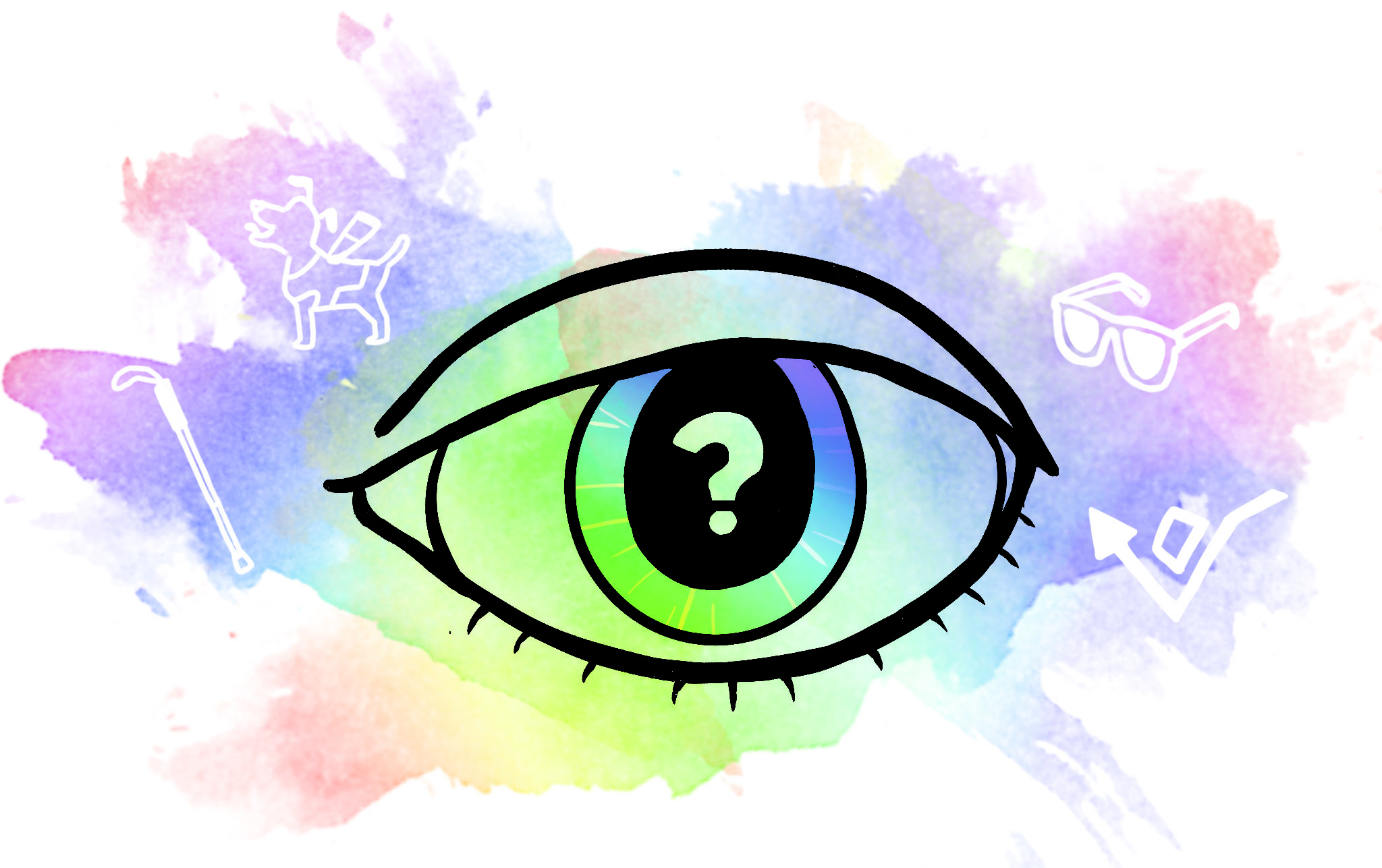I am legally blind. Vision Australia defines legal blindness as being unable to see “at six metres what someone with normal vision can see at 60 metres” or if a person’s “field of vision is less than 20 degrees in diameter”. People with blindness and vision loss all have a unique experience of the condition. My experience of blindness is such that I have no peripheral vision, no night vision, no depth perception and I have limited forward facing vision even with my glasses. The glasses I wear are the strongest prescription they can make for me, though they can’t correct my eyesight to what a ‘normal’ person can see.
The thing about being blind is that people expect you to not have any vision at all. This is a common misconception. There is absolute vision loss, partially sighted, legally blind, visually impaired and sighted. Blindness is a spectrum; it doesn’t just refer to people who have no vision at all. In fact, 90% of blind people have some functional vision. My glasses can correct my field of vision enough that it allows me to type, walk, and dance. Beyond three meters they allow me to see miniscule portions of what I may be looking directly at, so I can work out what people or objects are by their shape, colour, movement or sound.
Another common misconception is that, where you don’t have vision, you see blackness. This is also not the case. I don’t have peripheral vision… I don’t see blackness… I just don’t see anything. The way I describe this is, if you stand facing forward and I ask you to tell me what’s behind you, you can’t. It’s not black… it’s just not there. You can’t see anything behind you, there’s nothing there. That’s what it’s like to be blind, that’s what it’s like in those areas that my eyesight does not extend.
I have two white canes, one used for navigation and one used for identification. My identification cane is named Ethel and my navigation cane is named Bruce.
A common experience I have when using my cane in public is this: I use my cane to help me onto the bus, I sit in the accessible seating. I get my phone out to track the bus’s movements. Someone points at me and says, “If you’re blind why are you using a phone?” At this point I once again find myself explaining that blindness is a spectrum. I explain that I actually need my phone to see where I’m going and to know when to get off the bus, as I can’t see out of the windows. I show them the enlarged text and screen-reader on my phone – some of the assistive technology that helps me to navigate with limited vision. This is education I have to perform on a near daily basis. It is exhausting to have to continuously deal with the ignorance of strangers who feel entitled to an explanation of my disability.
Ignorant questions are frustrating – but there are also some awful comments I receive from people when I tell them I’m blind or if I use my white cane in public. Actually a lot of blind/partially sighted people experience accusatory comments from people when they witness us using the remaining vision that we do have. It’s for this reason that I don’t use Ethel and Bruce (my white canes) very often. I would rather not use my canes when I need them and end up injuring myself than to use them in public and risk public recrimination.
Just because I can type doesn’t mean I’m not blind. Just because I dance competitively, doesn’t mean I’m not blind. Just because I’m at uni, doesn’t mean I’m not blind. Just because I walk without a guide dog doesn’t make me not blind. Just because I can hold eye contact in the daytime or go clubbing with my friends, doesn’t mean that I am not blind.
Should I take photos every time I break skin by walking into or tripping over something, or knock over a table, or run into a person, to prove that I can’t see? I didn’t realise that me trying to be confident and strong with dealing with my vision loss would cause people to question my authenticity.
I’m legally blind, but society is a different kind of blind – society is blind to the varied experience of blind people. Society needs to accept blindness as a varied experience and, rather than treat blind people with suspicion for having remaining vision, support us so that we can use our white canes in public without fear.





